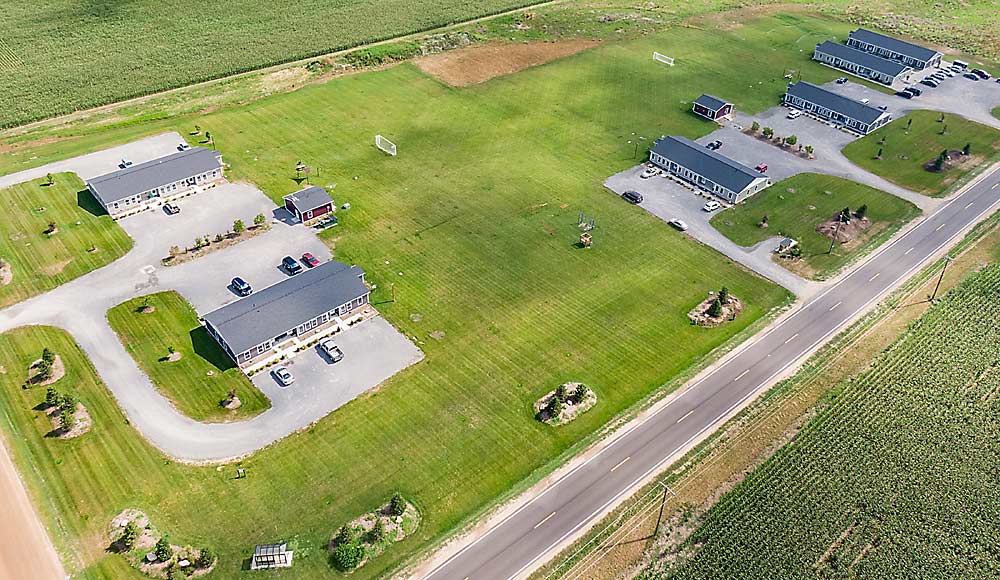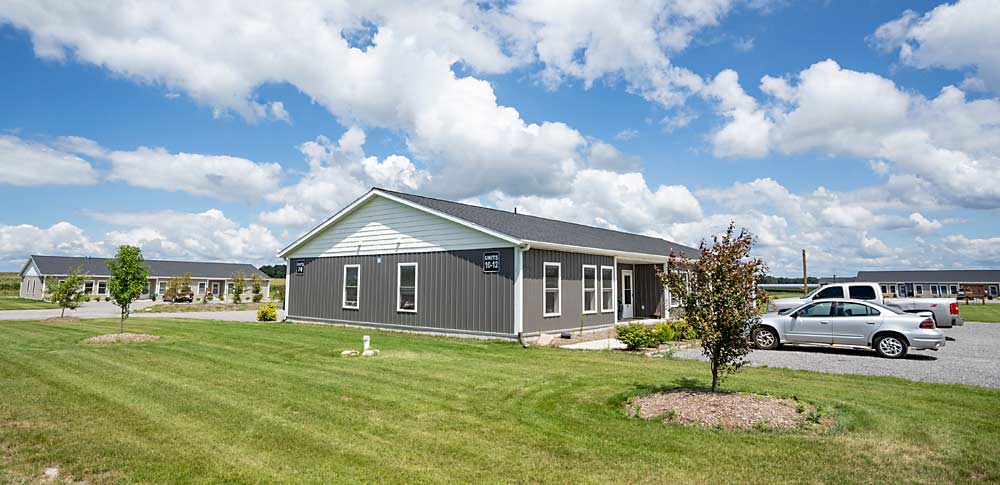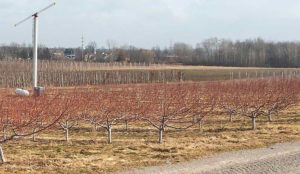
One of the biggest barriers to hiring and retaining workers in rural areas is a lack of adequate housing. To overcome that barrier, a Michigan fruit processor decided to build its own housing. According to a state task force, the experience offers a model for other agricultural businesses facing similar labor constraints.
Peterson Farms is one of the largest fruit processors east of the Rocky Mountains. It’s also the largest employer in Oceana County, Michigan — a lightly populated county with a limited supply of housing. Only 2 percent of the county’s housing inventory is available for long-term rentals, said Grant Boring, Peterson Farms’ marketing and communications manager.
That shortage posed a problem for a company that has several hundred employees working on a large campus near the small town of Shelby — a problem it decided to solve by partnering with the local community to build an apartment complex for its employees, Boring said.
Peterson Farms built Oceana Acres in 2018 and 2019. The 56 units can house up to 280 people, and the company plans to add another 40 apartments over the next two years. Sitting just a quarter mile away from the Peterson Farms campus, the facility includes laundry and vending areas, an outdoor barbecue and picnic area, a soccer field and playground, and transportation to and from work, he said.
When Elizabeth Evelhoch, a sanitation operations clerk, first joined Peterson Farms 2 1/2 years ago, she was faced with a 45-minute commute or local housing that was out of her price range. Oceana Acres offered her a “very affordable” alternative and was only five minutes from work. She and her family lived in one of the family units for almost two years. They moved into a rental house, also owned by Peterson Farms, a few months ago because they were outgrowing the apartment.
“It helped me tremendously,” she said.
As of March, Oceana Acres had 137 occupants, made up of 71 Peterson Farms employees (about 11 percent of the company’s total workforce) and their family members. Oceana Acres LLC, a subsidiary of Peterson Farms, owns the property. A local management company manages the apartments. Housing contracts are typically a maximum of 18 months. If the tenant leaves employment with Peterson Farms, the housing contract is terminated, Boring said.

Building an apartment complex was a challenge for a team that had no experience with housing. “We are experts at processing fruit, not building houses,” he said.
To ensure a project of this magnitude would be successful, the company reached out to local philanthropists, government officials, schools and businesses. Getting buy-in from the community was crucial, Boring said.
“We would like to think this is a template other rural companies could follow,” he said. “The best advice we can offer is to get the community involved and listen to your employees.”
In fall 2019, Peterson Farms gave state government officials a tour of Oceana Acres. After the tour, the Michigan Department of Agriculture and Rural Development created the Food and Agriculture Housing Task Force to study the lack of agricultural housing in Michigan.
After more than a year of investigation, the task force determined that a lack of affordable housing plays a critical role in the inability to find and retain a sufficient workforce for Michigan’s food and agriculture industry, according to a January 2021 report.
To deal with the problem, the task force report gave state government officials five main recommendations: Create a permanent funding source for housing and community development; pass legislation that would allow more private investment in housing activities; conduct a survey to determine where food and agriculture housing is needed most; work closely with local officials to make siting and zoning rules more consistent; and work with local communities to build low-cost rental housing for agricultural workers and employers.
The task force report cited Oceana Acres as a model for other Michigan agricultural and food processing employers to follow when seeking affordable housing for employees.
The task force also recognized Peterson Farms for meeting another crucial need for its employees: child care. The fruit processor worked with the local school district to convert a nearby church into the Oceana County Early Learning Center, which provides child care for employees and other residents. Oceana Acres tenants receive a discount on enrollment fees, according to the company.
—by Matt Milkovich







Leave A Comment